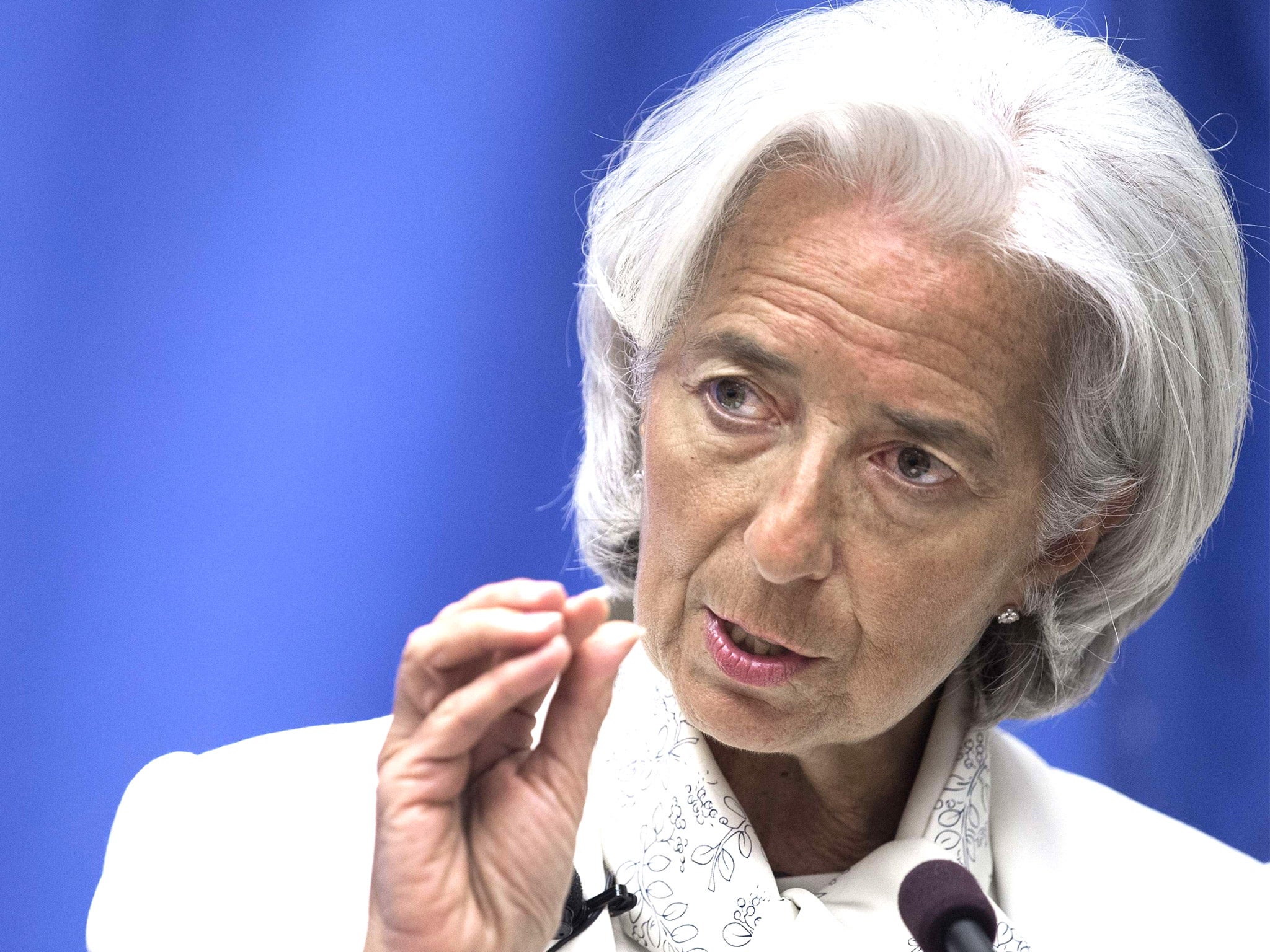US budget battle: IMF's Christine Lagarde warns America's lawmakers they risk pushing world into recession
Stark warning from IMF chief comes as search for deal to extend debt ceiling shifts to Senate

American lawmakers risk causing a “massive disruption the world over” that could tip the global economy into another recession if politics gets in the way of raising the country’s debt ceiling and the ongoing government shutdown remains unresolved, Christine Lagarde, the head of the International Monetary Fund, warned on Sunday as the US Senate became the focus of talks to end the budgetary deadlock in Washington.
The stark assessment by Ms Lagarde, a former French Finance Minister, came after news that talks between the Republican Speaker of the House of Representatives, John Boehner, and President Barack Obama had broken down, putting the onus on the Senate leadership to craft a bipartisan pact to avert what experts predict would be financial catastrophe.
The US government will hit the congressionally-mandated ceiling on how much money it can borrow to fund its commitments by 17 October. If by then the $16.7 trillion (£10.4trn) limit is not raised by the legislature, the US would be forced to walk down a road usually associated with weaker economies: dishonouring its spending commitments and defaulting on its debts, an outcome that Ms Lagarde said could shatter the fragile economic recovery under way in the US and around the world.
“If there is that degree of disruption, that lack of certainty, that lack of trust in the US signature, it would mean massive disruption the world over, and we would be at risk of tipping yet again into a recession,” she told NBC.
The IMF chief also poured cold water on suggestions by some within the Republican camp, including the Kentucky Senator Rand Paul, that the government need not default if the ceiling is not raised. Mr Paul told CNN that “not raising the debt ceiling means you have to balance your budget. It doesn’t mean you have to default.”
But Ms Lagarde said there was no room to get around the limit and what it meant. “When you are the largest economy in the world, when you are the safe haven in all circumstances, as has been the case, you can’t go into that creative accounting business,” Ms Lagarde said.
The warning came on the heels of a communique issued on Saturday by G20 finance ministers and central bankers in which they said: “The US needs to take urgent action to address short-term fiscal uncertainties.” Also on Saturday, the head of the World Bank, Jim Yong Kim, said: “We’re now five days away from a very dangerous moment… Inaction could result in interest rates rising, confidence falling and growth slowing.”
Domestically, a group of state governments swung into action to reopen some national parks and monuments that had been closed owing to the partial federal shutdown. In New York, tourists were once again able to take the ferry from Manhattan to the Statue of Liberty after the Governor, Andrew Cuomo, said the state would foot the daily bill of $61,600 to keep the attraction open. Similar deals were struck in Arizona to reopen the Grand Canyon, and in South Dakota to welcome visitors back to Mount Rushmore.
Meanwhile, in Washington, as the world looks on nervously and as state governments attempt to get around the federal closure, the Democratic Senate Majority Leader, Harry Reid, was in negotiations with his Republican counterpart in the chamber, Mitch McConnell, as they tried to put together a deal to break the deadlock. However, there were no signs of progess on Sunday, with a mid-afternoon phone call between the two leaders described as “cordial but inconclusive” by a Democratic source who spoke to Politico.
The venue shifted after the President rejected an offer from the House Speaker, Mr Boehner, to raise the debt ceiling temporarily until late November. The proposal was contingent on the White House agreeing to more detailed talks on the national budget. Democrats, however, would like a longer-term solution to the debt ceiling issue.
As the talks drag on, the risk is rising of market turmoil, particularly after stocks rose at the end of last week on signs of an agreement. While US stock markets will reopen on Monday, the bond markets are closed until Tuesday for the Columbus Day holiday.
Join our commenting forum
Join thought-provoking conversations, follow other Independent readers and see their replies
Comments